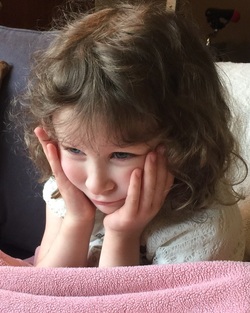 Most of us know what an art museum is and why people go there, they contain art that inspires and allows an individual to dream. We will stand around a painting and discuss the history of the piece, maybe the life of the artist, discuss painting techniques and eventually move on to another work of art. For an art museum to be successful, there needs to be a constant flow of new content. Paintings will be up for a limited time, before they are taken down and replaced by a new piece. Art Museum curators will carefully select with thought and intention what their next exhibit will communicate. What do art museums have to do with mental health? Many of us have experienced a negative event, a hurt in our lives. For some they can work through it and move on. For others they hold on to that hurt as if it were an art painting of high value. These types of paintings are hung in their mind, a sort of museum of hurts. This museum is frequented regularly, sometimes 3-4 times a day, sometimes 3-4 times an hour. These museums are not open to the public, they are very private. The owner does not want anyone to see the ugliness that hangs on the walls. Sometimes the owner will attempt to take down these paintings, but will be unsuccessful for one reason or another, possibly because they believe these paintings now define them. Why would someone hold on to their hurts? Sometimes the hurts that are hard to let go of can also provide a sense of power and identity. For some revisiting these works of hurt is met with hope that maybe this time there will be a new understanding, maybe some form of restoration, reconciliation, something. But they are left with the same thing they leave with after every visit. Hurt, confusion, bitterness, anxiety and depression. Can Depression and Anxiety be the Outcome of Holding on to Past Hurts? Yes I have found in my professional work that 90% of those I have worked with have reported some negative event, situation or moment in their life when they were vulnerable, through which the rest of their life gets filtered through. Tackling depression is an everyday commitment, much like exercise. Using the museum analogy again, you get to choose what is hung in your museum. You get to choose how much power and influence a certain piece in your museum has over you. You get to choose who visits your museum. Invite others in, commit, and stop giving power to negative points in your life.
 Seems like an odd title, but one that I thought appropriate. After being married for some time and working with couples I wondered why I wasn't asking this question. I know as a married person, there can be a lot of emphasis on not arguing or having disagreement. That seems burdensome. Couples fight, disagree and get frustrated with one another. If you've been married for any amount of time this is not a new concept. I believe there are healthy and unhealthy ways to argue. Let me give you some questions to think about and use to evaluate how you argue with your husband or wife: Unhealthy ways of arguing
Healthy ways of Arguing
Take time to consider these questions. A married couple's goal is not to avoid arguing or fighting, but to listen to one another, acknowledge feelings, look to understand and reconcile as much as possible.  This is for the Christian who suffers from anxiety and depression and feels the need to hide as well as for the Christian who has never experienced such an affliction. Anxiety affects 18% of Americans ages 18 or older (NIMH, 2014) and depression affects 6.7% of Americans ages 18 or older (NIMH, 2014). What does anxiety and depression have to do with Christianity? Christians get anxious and depressed. Whether your views are that anxiety and depression are a sin, a result of sin, a medical condition, spiritual oppression, stubbornness, chemical imbalance or manipulation, these disorders are very real and can significantly impair how a life is lived. Christians will often suffer with anxiety or depression in silence because they fear what they will be thought of by the same people they go to church with. They fear that they will be broken down, analyzed, put under a microscope and told they are the cause for their struggles. They begin to think and believe that because they are not seeing any progress, that God is angry with them, they don’t have enough faith, or they are stubborn to their “sin”. I believe we live in a fallen sinful world, that everything around us is infected and affected by sin. Anxiety and Depression can be the result of just that, living in a broken world. As Christians we go to church to worship God, to be in fellowship with one another. Church is the place where you get to hear about a good and great God, about his grace and mercy through the cross. Unfortunately for some, that grace is not felt from their brothers and sisters in Christ when it comes to their mental health. As a body of believers we must consider how we help those, love those who suffer with invisible afflictions. Mental Health and psychology are complex loaded topics, but ignoring them, casting them aside, dismissing them will not produce growth, will cause division and worse yet marginalize those who are already on the brink of hopelessness. Every Christian person is unique and at a different place in their faith with Christ. Struggling with anxiety, and depression are all difficult to treat, require understanding, lots of patience, grace and love. I am thankful that there are individuals that understand the human mind and know how to treat it. I view this as God’s grace. Christians, Pastors, Leaders, Churches love your brothers and sisters and know that there is a strong possibility that they are fighting a dark battle that has raged on for years and they are not winning. Have understanding, grace and compassion for their suffering. Get education on anxiety and depression, use that with the love of Christ to love those that are hurting. |
CONNECT WITH US
SEARCH THIS BLOG
ARCHIVES
June 2021
CATEGORIES
All
|
|
REQUEST AN APPOINTMENT
|
LOCATION
14233 Ambaum Blvd. SW #R Burien, WA 98166 GENERAL EMAIL info@buriencounseling.com |
All rights reserved copyright 2016 Burien Counseling

